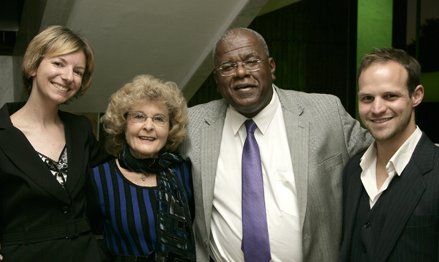Latest News Archive
Please select Category, Year, and then Month to display items
12 June 2024
|
Story Zinzi Zumana
|
Photo supplied
 UFS Lekgotla Men’s Well-being Programme: addiction dialogue encourages empowerment and exchange of ideas.
UFS Lekgotla Men’s Well-being Programme: addiction dialogue encourages empowerment and exchange of ideas.
The University of the Free State (UFS)
Division of Student Affairs hosted a ‘Dialogue on Addiction’ at the Equitas Senate Hall on 20 April 2024 as part of the UFS Lekgotla Men’s Well-being Programme. Led by the esteemed
Ace Moloi, male students’ well-being was addressed by focusing on topics relating to substance abuse, the ‘hookah pipe’, pornography, and digital addiction.
Ogaisitse Diseko, an expert on substance abuse, highlighted the misconceptions and societal impact of substances such as ‘bath salts’. Male students shared personal experiences, emphasising the need for early interventions and community backing to combat addiction.
Prof Noluxolo Gcaza, a Nelson Mandela University Professor specialising in digital wellness, presented on digital well-being, internet safety, and managing screen time. The dialogue concluded with Billy Mogadi sharing his journey from addiction to recovery, underscoring the human toll and the possibility of transformation.
Mogadi’s story resonated deeply, fostering hope and empowerment among attendees. The event highlighted the power of dialogue and support in addressing addiction issues. By promoting genuine interaction and providing the necessary tools, such initiatives contribute to community well-being and development. The UFS Lekgotla Men’s Well-being programme advances its goal of fostering healthier lives through open communication and mutual support.
'England, the English and the problem of education in South Africa.’
2013-09-26
|
 |
Attending the lecture were, from the left: Dr Susan Brokensha, Senior Lecturer: Department of English; Prof Rosemary Gray, Professor Emeritus (Honorary Life Vice-President of the English Academy of Southern Africa); Prof Jonathan Jansen; and Dr Thinus Conradie, Lecturer: Department of English.
Photo: Johan Roux
26 September 2013 |
Prof Jonathan Jansen: Lecture
The university celebrated the life of one of South Africa's most renowned art critics, hosting the 2013 English Academy’s Percy Baneshik Memorial Lecture on the Bloemfontein Campus.
The keynote lecture was delivered by Prof Jonathan Jansen, Vice-Chancellor and Rector, who joined a distinguished list of speakers to have delivered the lecture. Presented annually by the English Academy of Southern Africa, an association dedicated to promoting the effective use of English as a dynamic language in Southern Africa, past speakers include Prof Es’kia Mphahlele, Prof Njabulo Ndebele, Dr Alan Paton and Prof Albie Sachs. The lecture is hosted at venues across the country and this year Bloemfontein paid tribute to Percy Baneshik.
In his speech Not even colonial born: England, the English and the problem of education in South Africa,' Prof Jansen addressed the dilemma of the politics of language in both school and university education today.
Talking about the dominance of English in schools, Prof Jansen said it is the language of choice because indigenous languages are so poorly taught. "Simply learning in your mother tongue is absolutely no guarantee of improved learning gains in school. The problem is not the language of instruction; it is the quality of teaching, the knowledge of curriculum and the stability of the school."
Prof Jansen told the audience in the CR Swart Hall that Afrikaans-exclusive, or even Afrikaans-dominant white schools represent a serious threat to race relations in South Africa. "You simply cannot prepare young people for dealing with the scars of our violent past without creating optimal opportunities in the educational environment for living and learning together."